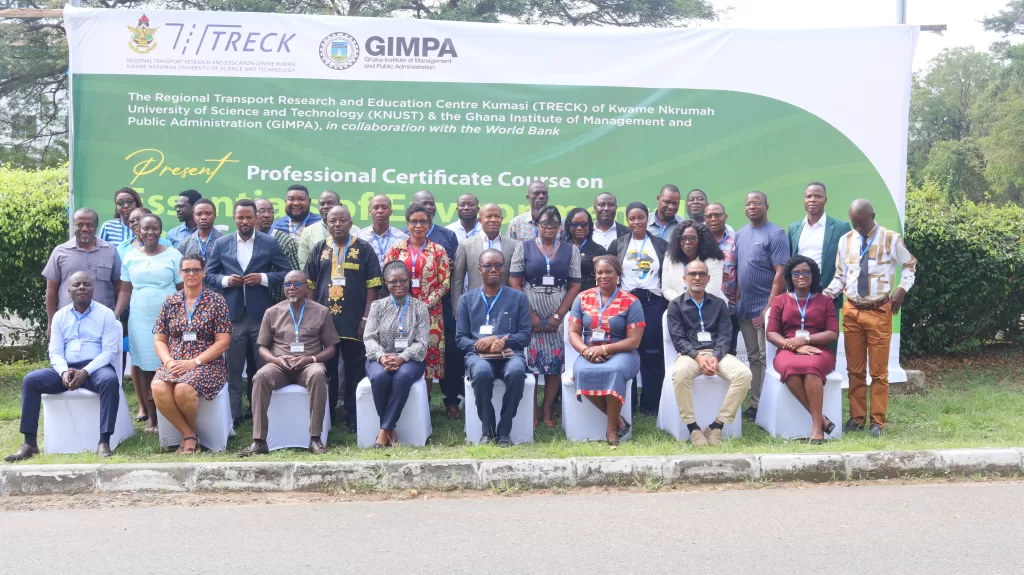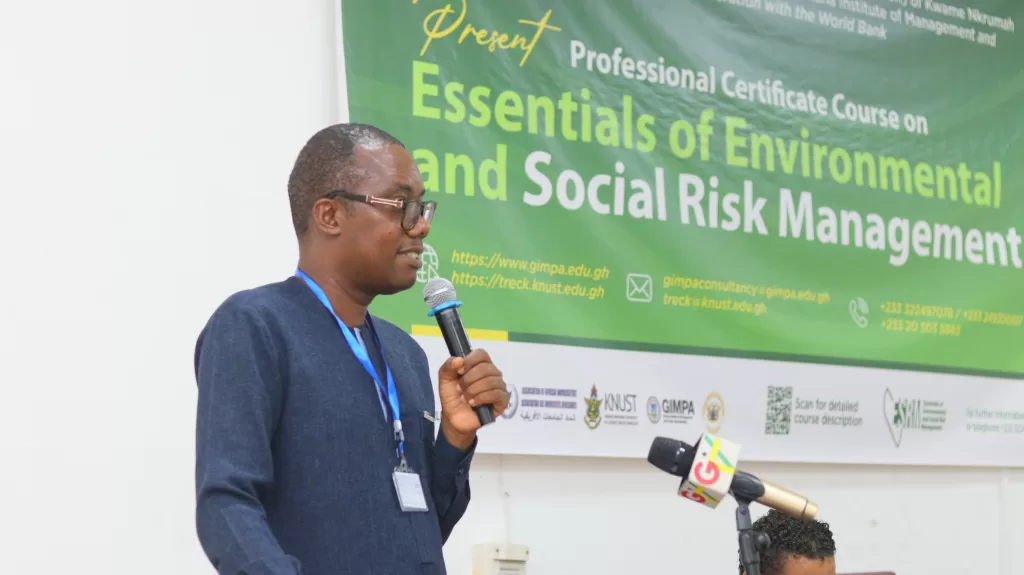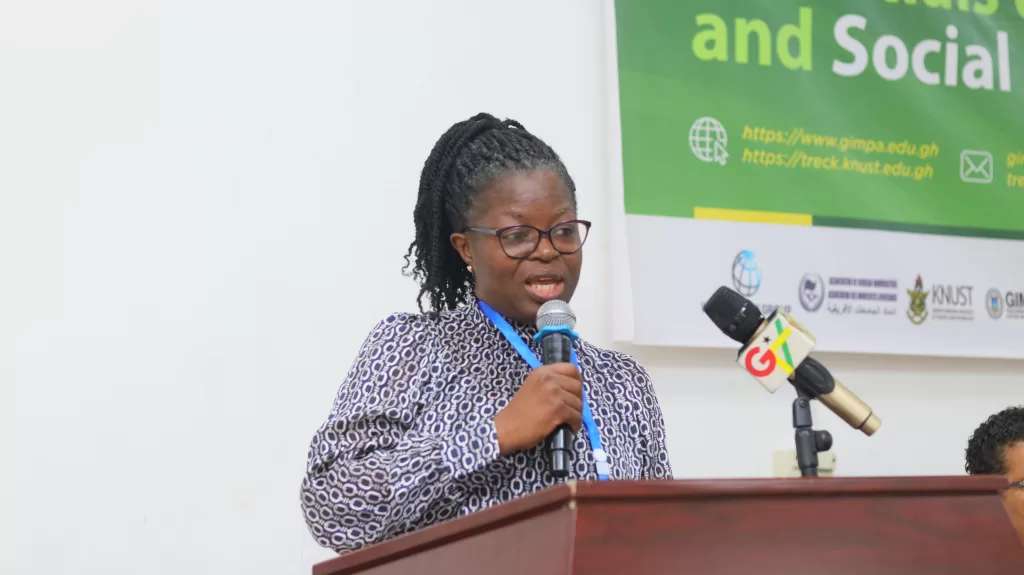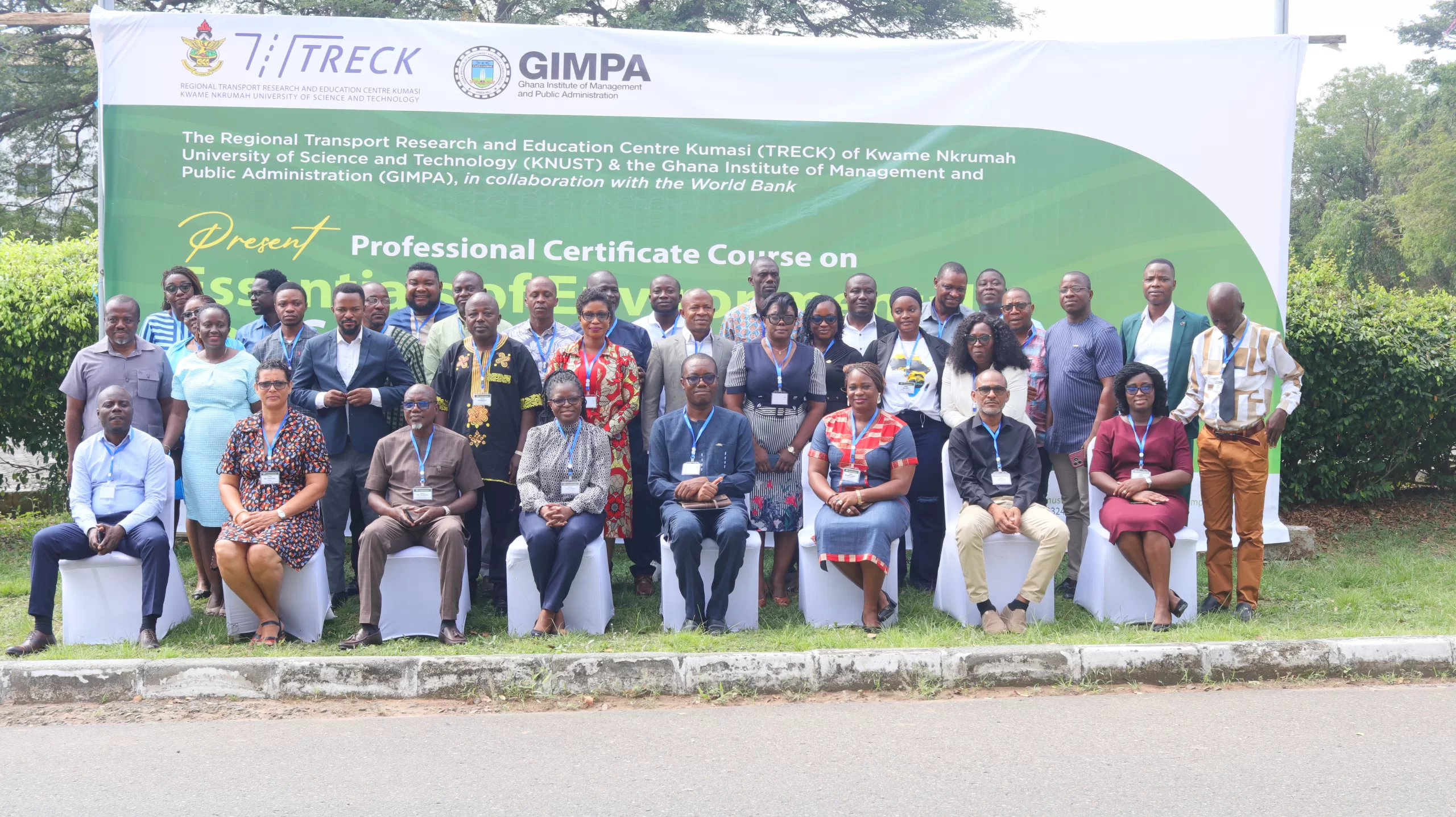By Raymond Rex Awiagah
Background
A six-day training program on the Essentials of Environmental and Social Risk Management is currently underway in Accra. The initiative, organized by the Regional Transport Research and Education Centre (TRECK) of Kwame Nkrumah University of Science and Technology (KNUST) in collaboration with GIMPA Training and Consulting and the World Bank, aims to equip participants with the skills and knowledge necessary to manage environmental and social risks in development projects across the West African region.

Participating Countries in the Environmental and Social Risk Management Training
The training, which brings together participants from Ghana, Liberia, and Sierra Leone, covers key topics including risk assessment, mitigation strategies, and the integration of environmental and social considerations into development planning. The program also aims to foster collaboration and knowledge sharing between the three countries, which face similar challenges in sustainable development and project implementation.
Point of view from GIMPA Training & Consulting
In an interview with Raymond News, the Executive Director of GIMPA Training and Consulting, Professor Charles Amoatey highlighted the importance of understanding the social and environmental implications of development projects.

“We haven’t managed our development process quite well as a country. We have seen disregard as far as environmental impact of projects are concerned. illegal mining is a big issue in Ghana and I think its a sign of weakness in our institution as far as monitoring and ensuring compliance of this environmental issues”,
Optimistic of Environmental and Social Risk Management Training
Professor Charles Amoatey added that they are hoping that the training will address the dangers of illegal mining “we need to change the issues, there need to be policies that will ensure that we have processes in place that will ensure environmental and social issues are addressed. one of the main challenges we face has to do with compliance and so part of training is also looking at monitoring and evaluations skill”.
Previous Environmental and Social Risk Management Training
According to Professor Charles Amoatey, over the past Six (6) sessions, they have trained about 200 participants “ I think the impact has been quite encouraging, we are getting feedback that shows that there has been significant improvements from the Worldbank's assessment of member countries as far as compliance with environmental and social risk standards in the way projects are implemented in the member countries so for us this is very positive" .
TRECK Director’s Point of view
For her part, the director of Regional Transport Research and Education Centre (TRECK) of Kwame Nkrumah University of Science and Technology (KNUST) Professor Ellen Esandoh said that well-managed projects can contribute to long-term sustainable development, while poorly managed projects can lead to significant negative impacts on both communities.

"You will realize that there are a lot of development projects, governments are always implementing projects to make things better for the populace and on those projects you would see that there are issues that come with the implementation and the construction so it is important that we look critically and try to identify those risk that can come with those projects and then design interventions to minimize the impacts that come from those development projects”. she added.
Key Focus Areas of the Training
According to Professor Ellen Esandoh, the training will cover 10 key areas such as environmental and social risk management, regulatory and institutional frameworks for environmental and social risk management, stakeholder engagement, social issues that comes with development such as land acquisition and involuntary settlement, occupational health and safety, conflict and competing interest, gender based violence, sexual exploitation and abuse.
The Expectation from Participants
The six (6) day training is expected to enhance the participants’ capacity to assess and mitigate risks, promote sustainable practices, and ensure that development initiatives benefit local communities while safeguarding the environment.
The Broader Regional Effort
With the support of the World Bank, the training is also seen as part of a broader regional effort to build technical expertise and strengthen governance structures in West Africa. As the program progresses, participants are expected to share insights from their respective countries, creating a cross-border exchange of knowledge that can inform better practices in environmental and social risk management across the region.
